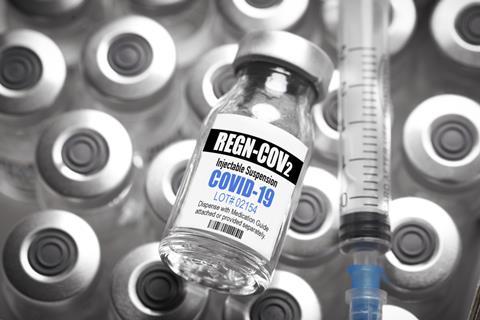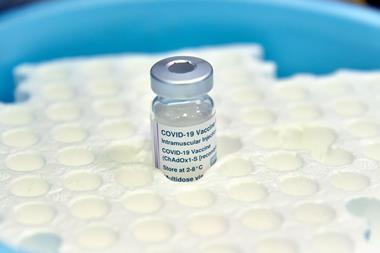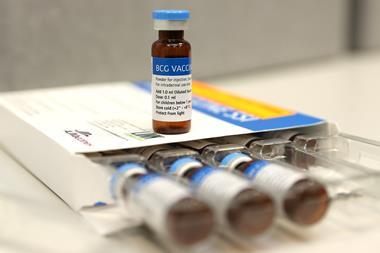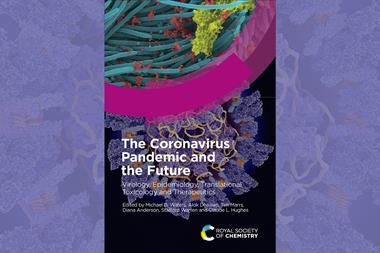Regn-Cov2 reduces deaths and shortens hospitalisation for these patients, even when given at late stages of infection
An antibody combination from Regeneron reduces the risk of death from Covid-19, when given to severely ill patients who have no antibody response of their own, according to new trial results.

Regn-Cov2 comprises two monoclonal antibodies (casirivimab and imdevimab) that bind to the spike protein of Sars-CoV-2. It is being evaluated as part of the independent Randomised Evaluation of COVID-19 Therapy (Recovery) trial with 9785 hospitalised patients, randomised to receive usual care or usual care plus antibody therapy.
About a third of the patients enrolled had no antibody response of their own to the virus. Results in a preprint on medRxiv confirm that, for this group, the drug reduced deaths by a fifth and hospitalisation from 17 to 13 days, compared with usual care alone. Among patients who had their own antibodies, Regn-Cov2 offered no benefit.
‘It is good news in that this is the first antiviral drug shown to work at a relatively late stage of disease,’ says Stephen Evans from the London School of Hygiene & Tropical Medicine, UK. ‘But the benefits are not enormous. It reduced deaths from 30% to 24%. It could be a high cost for a relatively small gain.’ For every 100 patients treated, six fewer died.
‘We knew that if you give antibody therapy early you can stop progression of the disease,’ says Arturo Casadevall from Johns Hopkins University in Baltimore, US. ‘What makes this exciting is that they have identified a subset of people who benefit from late administration.’ Antibodies are the body’s main antiviral protection mechanism, he adds, so if someone doesn’t make them, they are susceptible to severe disease.
‘One of the challenges is having assays for these antibodies readily available,’ explains Richard Haynes, clinical coordinator for the Recovery trial at the University of Oxford. There are assays on the market, but they are not widely used.
Regeneron noted in its press release that Regn-Cov2 retains potency against the main viral variants of concern in the US. ‘Regen-Cov has full activity against the delta variant, although some other variants do reduce the activity of its parts,’ notes Haynes. ‘Even if one antibody binds less well, the other one still works, so the overall efficacy is not reduced.’
Also this week, AstraZeneca’s Covid antibody therapy (AZD7442) failed in a trial aiming to prevent Covid-19 symptoms in unvaccinated people exposed to the virus. Meanwhile Eli Lily continues to supply its bamlanivimab/etesevimab antibody cocktail under Emergency Use Authorisation in the US. This is for patients with mild to moderate Covid-19 who are at risk of developing severe disease, but not for the severely ill.
Separately, CureVac’s mRNA vaccine candidate failed in a phase 2b/3 trial, with interim efficacy of just 47% against Covid-19 of any severity. More than half of cases among trial participants were variants of concern. ‘The variant-rich environment underlines the importance of developing next-generation vaccines as new virus variants continue to emerge,’ a company press release noted.

















No comments yet